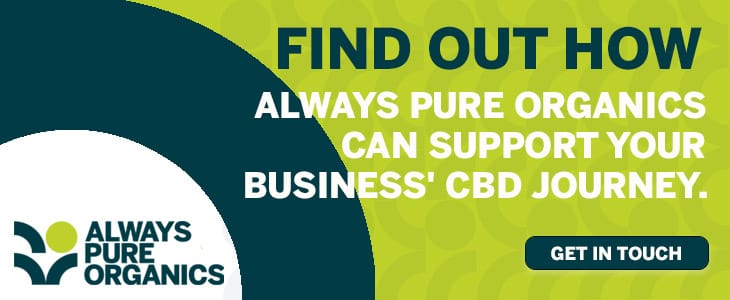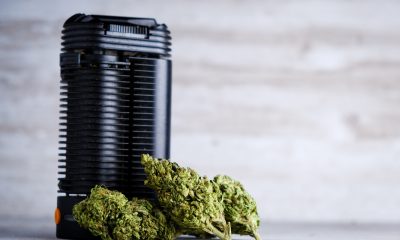CBD companies have been urged not to panic as the Home Office insists its position on the cannabinoid has not changed.
Several business owners expressed concern to Cannabis Health last week, following reports that all those importing bulk isolates or distillates, would need to apply for a Schedule One Controlled Drug Licence from the UK Home Office.
It came following a letter from Justice Minister Kit Malthouse to the Advisory Council on the Misuse of Drugs (ACMD) calling for further clarity on the legal levels of THC permitted in CBD products.
The move was described as another ‘hurdle’ facing UK companies, just weeks away from the novel food application deadline, with some fearing the licence requirement would force them out of the industry.
However, Robert Jappie, a cannabis lawyer and partner at Ince, told Cannabis Health that he does not believe companies have any reason to panic at this stage.
Mr Jappie welcomed the letter from the Justice Minister as a “positive” move towards much-needed clarity around the 1mg THC rule.
“The 1mg rule needs addressing to bring clarity to the industry,” he said.
“I generally considered the Malthouse letter to be quite positive, although its emergence was certainly a surprise.”

The letter, sent on 11 January, states that the Government wishes to “explore the possibility” of creating a specific exemption in the Misuse of Drugs Regulations 2001 for CBD products which contain “no more than a defined trace percentage of controlled cannabinoids.”
It proposes that the defined trace THC percentage in CBD products should be set at a level between 0.01 percent and 0.0001 percent by “weight per controlled cannabinoid”.
If the ACMD opts for the trace amount to be set at 0.01 percent, the legally permitted levels would actually increase, with a 50ml bottle containing 5mg of THC.
But the latter could have huge implications for companies selling full and broad-spectrum products, making it virtually impossible to remove all trace levels of THC to a legal amount.
Malthouse adds that the precise level will be determined “following further scientific testing advice” and the Government currently has “no plans to look at the status of CBD itself under drug legislation”.
But understandably, the uncertainty around THC levels has caused concern in the industry.
Paul Shrive, founder of Leafline CBD, said a controlled drug licence – which can equate to tens of thousands, including the required documents for importing, handling and shipping products – was not feasible for smaller companies.
“If it was feasible there is no denying that I would be in control of the whole process from seed to shelf as this is my craft and my passion, he said.
“But unless you are a big pharmaceutical business with a lot of money behind you, there are too many hurdles to get past. It’s almost impossible to get through it all and it seems like a system designed to make you fail.”
Shrive added: “Granted, if we were talking about cannabis based prescribed medication then of course, there are strict measures that need to be adhered to, but this is hemp, a plant which we have been working with since the dark ages and causes absolutely no harm to anyone, only good.”
However, according to Jappie, there is as of yet, no indication that CBD companies need to apply for the Schedule One licence.
“Given that companies have been encouraged to engage in the novel food process, it seems unlikely that the Home Office would suddenly impose licence requirements too,” he continued.
“I don’t think companies should panic about this. Novel Food sets a high benchmark for quality and safety standards in the UK. CBD has been placed into that regime and that should be sufficient to ensure that consumers are protected.”
In a statement to Cannabis Health, the Home Office confirmed its stance on CBD had not changed and it hoped the advice from the ACMD would “strengthen the law” and allow companies to create “safe and legitimate” CBD products more easily.
A Home Office spokesperson said: “The legislation, and the Home Office’s position on CBD, has not changed. CBD, as an isolated substance, in its pure form, is not a controlled drug.
“However if a produce contains THC or other controlled cannabinoids, then it is highly likely this product would be controlled.”
“We have asked the Advisory Council on the Misuse of Drugs to provide advice on how we can strengthen the law on consumer CBD products. We hope this advice will allow us to make sure the law is clear and that these products are safe for consumers so those who seek to create legitimate, safe CBD consumer products, are able to do so more easily.”

 News6 months ago
News6 months ago
 News6 months ago
News6 months ago
 News6 months ago
News6 months ago
 Science5 months ago
Science5 months ago
 Industry5 months ago
Industry5 months ago
 News6 months ago
News6 months ago
 Medical cannabis6 months ago
Medical cannabis6 months ago
 News5 months ago
News5 months ago













